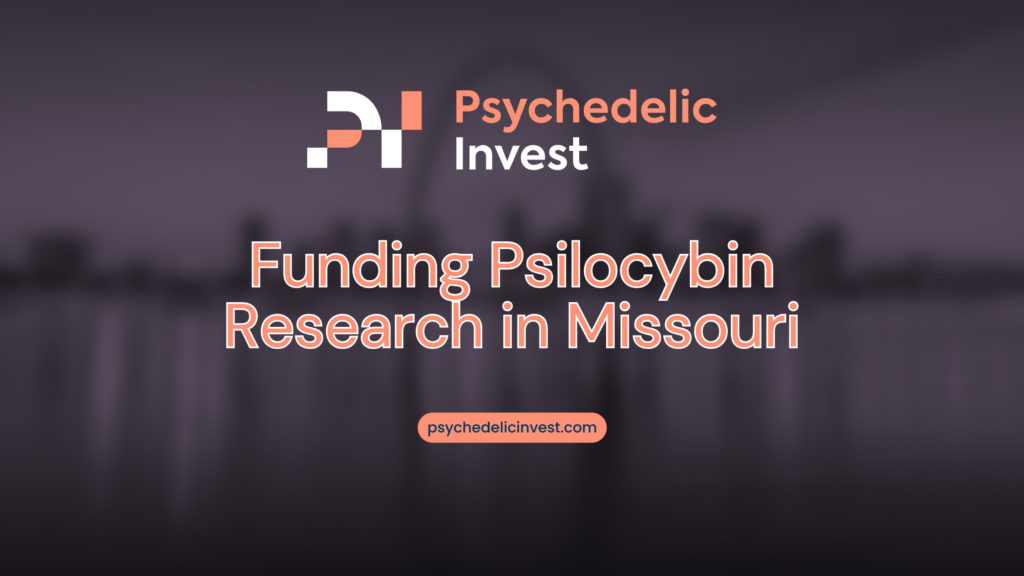Psychedelics
Missouri Considers $10 Million from Opioid Settlements for Psilocybin Research
Missouri’s legislative body, the House of Representatives, has recently endorsed a budget legislation earmarking $10 million of the state’s opioid…

Missouri’s legislative body, the House of Representatives, has recently endorsed a budget legislation earmarking $10 million of the state’s opioid settlement proceeds for research grants. However, these aren’t ordinary grants. Their purpose is to delve into the potential of psilocybin as a remedy for opioid use disorder, an issue that’s currently casting a shadow over public health across the United States.
The narrative surrounding the bill, HB 2010, underwent a significant shift. Initially, it was proposed that the $10 million be channeled into researching ibogaine’s utility in treating opioid use disorder. This idea was later revised, steering the investment towards psilocybin research. This strategic pivot dedicates a one-time allotment from the state’s Opioid Addiction Treatment and Recovery Fund to support research universities. These institutions are tasked with investigating psilocybin’s efficacy in the treatment of substance use disorders.
Rep. Cody Smith, the Republican who presented the initial budget proposal, cited discussions with the state Department of Mental Health as the catalyst for this change. Concerns regarding the risks associated with ibogaine research prompted this shift towards psilocybin. This decision aligns with a broader trend, where various states have applied their opioid settlement funds towards psychedelic research.
Rep. Chad Perkins, also a Republican and initial proponent of ibogaine research, expressed his openness to exploring alternative solutions. Despite initially advocating for ibogaine, feedback on the potential merits of psilocybin swayed his perspective. Missouri, anticipated to receive a substantial influx of opioid-related settlement funds, is now seen as a pioneer in advocating for psychedelic-assisted treatments as a method to address the opioid epidemic.
The shift from ibogaine to psilocybin research is indicative of a larger trend towards safer, yet potentially transformative, treatments for addiction. Despite ibogaine’s promise in addiction therapy, its legal status and associated health risks have made psilocybin a more viable option. Research into psilocybin, not only for its therapeutic potential but also as a preventive measure against opioid use disorder, is gaining momentum.
A study highlighted by TIME in 2022, drawing from data spanning 2015 to 2019, found a significant correlation between psilocybin use and a lower risk of developing opioid use disorder. This study, among others, underscores psilocybin’s potential not just in treatment but also in preventing the onset of addiction.
Missouri’s decision to fund psilocybin research marks a significant milestone in the acceptance and integration of psychedelic therapies into mainstream medical practice. This move is part of a broader wave of acceptance across even the most conservative states. From Indiana’s legislative support for clinical trials to Utah’s pilot program and Arizona’s push towards legalized psilocybin service centers, the landscape of addiction treatment and mental health care is undergoing a profound transformation.
The Missouri initiative is more than just a financial investment; it’s a statement of openness and hope. It signifies a growing recognition of psychedelic substances not as taboo, but as potent tools in the battle against one of the most challenging public health crises of our time. As research unfolds and policies evolve, the potential for psilocybin to offer relief to millions struggling with addiction offers a beacon of hope. In a country grappling with the devastating effects of the opioid crisis, Missouri’s pioneering effort could pave the way for a future where psychedelic therapy is a cornerstone of addiction treatment.

-

 Psilocybin6 days ago
Psilocybin6 days agoPassover Perspectives: Psychedelics, Moses, and the Burning Bush
-

 Psychedelics1 week ago
Psychedelics1 week agoPsychedelics Can Offer More Than Therapy On Its Own
-

 Psychedelics5 days ago
Psychedelics5 days agoAlgernon NeuroScience and the Centre for Human Drug Research to Present DMT Phase 1 Stroke Clinical Data at the Interdisciplinary Conference on Psychedelic Research June 6 – 8th, 2024
-

 Psychedelics6 days ago
Psychedelics6 days agoRevive Therapeutics Announces Type C Meeting Request Granted by FDA for Clinical Study of Bucillamine to Treat Long COVID
-

 Law & Regulation5 days ago
Law & Regulation5 days agoTryp Therapeutics merger with Exopharm approved by shareholders
-

 Psychedelics5 days ago
Psychedelics5 days agoatai Life Sciences Announces Dosing of First Patient in Part 2 of Beckley Psytech’s Phase 2a Study Exploring BPL-003 Adjunctive to SSRIs in Patients with Treatment Resistant Depression
-

 Psychedelics6 days ago
Psychedelics6 days agoSilo Pharma Announces Positive Results for Intranasal PTSD Treatment
-

 Psychedelics6 days ago
Psychedelics6 days agoSilo Pharma Announces Positive Results for Intranasal PTSD Treatment










